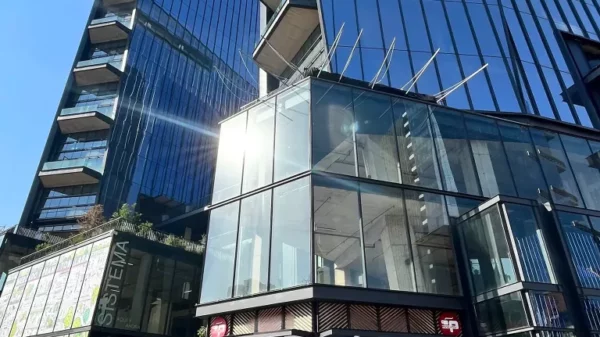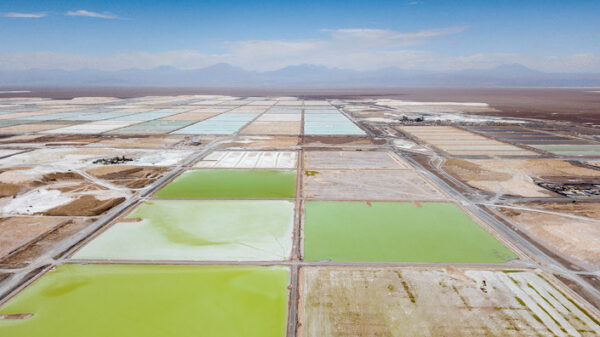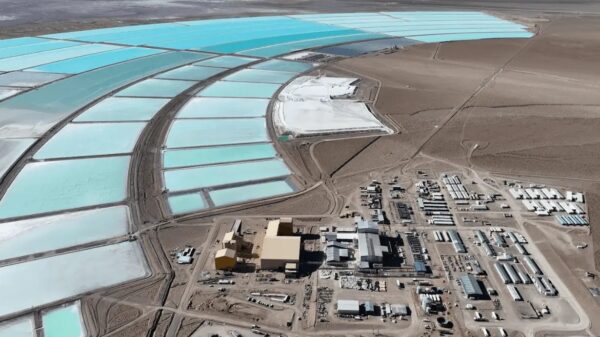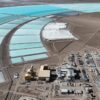Chile has decided to open calls by the end of July for lithium component producers to get preferential pricing on lithium produced by Albemarle Corporation (NYSE: ALB) through 2043, according to an government announcement on Thursday.
Albemarle and Sociedad Química y Minera de Chile (NYSE: SQM) are the two biggest lithium producers in Chile, and each have contracts stipulating they must award part of their output at preferential prices to companies investing in Chile.
Originally announced by President Gabriel Boric last year, this strategy aims to spur local investment in lithium technologies, including batteries and battery components. Chile is the world’s second-largest lithium producer.
Jose Miguel Benavente, the head of Chile’s economic development agency CORFO, said a dozen companies from various countries are interested in obtaining lithium through the Albemarle offering. This positions Chile to take a bigger role in the global supply chain of battery components, whether for electric vehicles or other types of energy storage.
Meanwhile, last year, CORFO awarded preferential pricing contracts for lithium produced by SQM to Chinese electric-vehicle maker BYD and China’s Tsingshan Holding Group. These contracts are contingent on the companies’ plans to develop battery parts in Chile.
Benavente told reporters that government officials were helping BYD search for a site to build the plant and mentioned that the EV maker has the option to negotiate directly with SQM over pricing. He said BYD has so far fulfilled its obligations to access the SQM preferential pricing, but must begin production in 2025 to maintain the contract.
Read more: Lithium South Development expands production goals, updates PEA on Hombre Muerto lithium project
Read more: Lithium South Development updates leadership roster, appoints new director
New process follows resolution of four-year dispute
Chile had a bidding process in 2018 for preferential prices on Albemarle production with three companies, but the deal fell through due to supply and price issues.
The new process follows the resolution of a four-year dispute between CORFO and Albemarle, during which Chile allowed Albemarle to increase its lithium production by nearly 50 per cent, contingent on developing new technology aimed at more environmentally friendly extraction.
Chile isn’t the only country in the lithium triangle with this type of deal.
Other countries in the triangle, and specifically Argentina, have preferential treatment deals similar to those Chile has with Albemarle.
In Argentina, the government has implemented mining-friendly policies and incentives to attract foreign investment in its lithium sector. For example, companies such as China’s Tsingshan Holding Group and Ganfeng Lithium (SZSE: 002460) (SEHK: 1772) have secured significant investments and projects. Tsingshan is investing $770 million in the Salar Centenario-Ratones project, while Ganfeng is involved in the Olaroz-Cauchari project, which aims to produce significant quantities of lithium for export.
Meanwhile, smaller companies like Lithium South Development Corporation (TSXV: LIS) (OTCQB: LISMF) (Frankfurt: OGPQ) and POSCO Holdings (NYSE: PKX) have agreed to work together to develop the Hombre Muerto North lithium project and compete more effectively with Arcadium Lithium plc (tickers), which is a recent large-scale merger of former companies, Livent Corporation and Allkem.
In Bolivia, however, the approach is different. The Bolivian government maintains strict control over its lithium resources and has been more cautious about allowing foreign companies to exploit these reserves. The country has invested in state-controlled lithium extraction and production, with limited involvement from private or foreign companies.
Lithium South Development Corporation is a sponsor of Mugglehead news coverage
.
Follow Joseph Morton on Twitter
joseph@mugglehead.com














